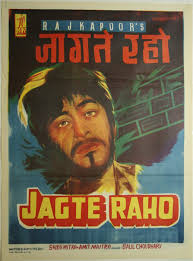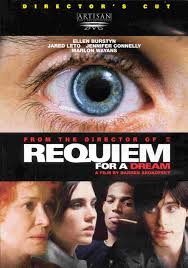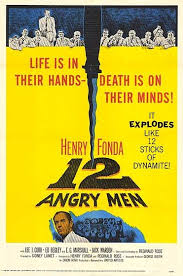This post originally appeared at PassionforCinema, an Indian international cinema blog.
Most people release lists of their favourite that came out in a particular year. It makes sense for them, because they’ve watched nearly everything that came out in a particular year.
I, however, have two peculiarities: I’m insanely selective about the money I give my local theatre and my local theatre around as selective about getting prints of the really good English movies (movies I’ve watched in a theatre 2009: Watchmen 3.5/4, HP6 3/4, Transformers 2 0/4, Monsters v/s Aliens 3/4, All the Best 3.5/4, The Hangover 3.5/4, Inglourious Basterds 4/4, Kaminey 2/4, Rocket Singh 2.5/4, Wake Up Sid 3.5/4), and I’m still watching a beginner’s course of cinema. This means that I can’t come up with a conventional list.
Lists, however, are important; they force you to retrospect, and clearly decide on your preferences. So, here are my lists, which include the movies I’ve watched in 2009. And since I watch movies completely devoid of their context, I’m not putting release years.
My biases: Black-and-white over colour, December over January (brackets after director’s name say when I watched the movie), atmospheric over easy-feel, movies with 12 in the name, and more that I can’t catalogue right now.
Best: Links are to reviews on my blog.
- Kumonosu jo (Throne of Blood), Kurosawa Akira (January): I’m not even sure whether I watched this in 2009 or 2008, but this best adaptation of Macbeth still affects, much more than his more celebrated Seven Samurai and Yojimbo (I like it about as much as I like Rashomon). But then, I’d been studying the play for the two years prior.
- 8 ½, Frederico Fellini (mid-December): I’ve been reading lots of the literature about this movie, and all of it focuses on the apparent complexity. Personally, I found it rather lucid; it wasn’t hard to come up with a plausible explanation for the happenings. But I don’t like it for its lucidity, I like it for something none of the writers I’ve read have mentioned: how much fun it is.
- Jagte Raho (Stay Awake/Don’t Fall Asleep), Amit & Shombhu Mitra (December 27th): My watching was part of a big back-to-my-roots watching of ‘50s movies, including Awara, Pyaasa, Kaagaz Ke Phool, and Bimal Roy’s Devdas. This one came out head-and-shoulders above them, in fact above all Hindi movies I’ve ever watched. The best thing about the movie was the morally complex emotional reaction it induced: I pitied everyone in the movie (except the kid from Rashomon and the Nargis cameo), but while I pitied every secondary character for what he/she was, I only pitied Raj Kapoor’s situation. The second-best thing: the direction and the script match up to RK’s acting.
- Citizen Kane, Orson Welles (August/September): Much is made of this movie, but for me its true greatness lies in the fact that, during the celebration scenes, I could feel that Kane was putting on a show. Observation: it couldn’t possibly have worked in any other accent.
- Waking Life, Richard Linklater (early December): A brave film which seeks to fight the apathy among the common man. Also, it taught me that anyone who says that cinema is a visual medium is bullshitting; cinema is an audio-visual medium, as witnessed by the fact that this movie is held together completely by force of music; otherwise, it would be nothing more than detached, albeit interesting, set-pieces. Saying all that, let’s not forget what an experience it is. Here’s my review, written in the ten minutes after my second viewing.
- Requiem for a Dream, Darren Arronofsky (October): Go watch the movie, it’s nothing more than an experience.
- 12 Monkeys, Terry Gilliam (June/July): I love SF, and here’s an atmospheric story about the psychological trauma faced by a time-traveller.
- 12 Angry Men, Sidney Lumet (September): Subtly atmospheric, so much so that I watched it again when I suddenly remembered the claustrophobia when I read Ebert’s piece. I felt it again.
- Being John Malkovich, Charlie Kaufman (writer) and Spike Jonze (October, twice): The only other Kaufman I’ve watched is Human Nature, and this one was brilliant. After the second time, I realised that this was much deeper than what I’d taken it to be.
- No Smoking, Anurag Kashyap (July): I’m still to watch Black Friday or any Lynch, so I consider this the best Kashyap, followed closely by Gulaal. I didn’t like Dev.D. Please note: this is not on this list because of ‘importance’ or something; the atmosphere really got through to me.
- The Man from Earth, Jerome Bixby: Not actually no. 11, but I’m putting it here because it deserves a bigger audience. It does deserve a place in the special mentions, so don’t worry about insane promotions.
Special Mentions: Movies that have a sustained influence on my emotions, but that I didn’t put on the list. In order of having come to my head.
The Man from Earth, Jerome Bixby
Across the Universe, Julie Taymor: A love story musical in which all the songs are cover versions of Beatles songs, some radically altered. The best thing, however, is the visual inventiveness of the movie. I saw it again the same day. Ebert’s review.
Sin City, Robert Rodriguez and Frank Miller: Ebert.
Batman Begins (but not its sequel), Chris Nolan: A superhero movie that goes into the depths of what it means to be a superhero, how it differs from being a vigilante, and the psychology of the main character Bruce Wayne(/batman).
Jules and Jim, Francois Truffaut: I’m not completely sure why this one isn’t on the top ten list.
Manorama – Six Feet Under, Navdeep Singh: An Indian noir, a copy of Polanski’s Chinatown. Masterfully paced.
Omkara, The Blue Umbrella, Vishal Bhardwaj: The first is a copy of Othello with one of the performances of the decade by Saif Ali Khan, who plays Iago. The second is an adult kids’ movie about the theft of an exotic umbrella from a kid.
Gulaal, Anurag Kashyap: A political allegorical thriller with a Shakespearan clown next to off-center.
Eyes Wide Shut, Paths of Glory, Dr. Strangelove, Stanley Kubrick: A realistic parable about insecurity and infidelity in marriage, a subtlety-over-depth anti-war statement, a parody of the Cold War made during its height, all Kubrickally done. Clicking on Kubrick’s name gives access to all three Ebert reviews, and more.
Spirited Away, Hayao Miyazaki: Beautiful, deep manga animation, each frame hand-drawn. Another movie I watched again to satisfy myself.
Dog Day Afternoon, Sidney Lumet: Everyone says this is about the effect of TV news, but I didn’t think there was enough focus on that. Still, the most spellbinding thriller I’ve ever seen with Al Pacino doing some career-defining work. Ebert’s review.
Oye Lucky! Lucky Oye!, Dibakar Bannerjee: A clear-eyed, unsentimental look at what being a well-known thief is like for you and those around you.
Juno, Jason Reitman: Teenage girl gets pregnant. Intelligent teenage girl gets pregnant. Ebert again.
Taxi Driver, The Aviator, Martin Scorsese: Masterfully made stuff. The involving power, of all three – Marty, Robert de Niro, Leo -, is enormous.
Babel, Alejandro Gonzales Inarritu: Miscommunication. A little technnique of quick pan followed by bob at destination instead of cutting makes this a truly melancholy experience. Only movie that’s made me think of that word.
Before Sunrise and Before Sunset, Richard Linklater
Charlie Wilson’s War, Mike Nichols: A biopic in which the bio-ed guesses perfectly at the consequences, it got me by this method of making everything seem ominous and telling us about what went wrong at the same time.
Hazaaron Khwaishein Aisi, Sudhir Mishra: A clash of two ideas both trying to woo a third, each embodied in a character. Or did I get that the wrong way round? Doesn’t really matter.
The Virgin Spring, Ingmar Bergman: Swedish Kurosawa. Heartrending.
The Silence of the Lambs, Jonathan Demme: This one intrigued me as much as it scared me, but it formed an unforgettable experience nonetheless.
Inglourious Basterds, Quentin Tarantino (my friend says that I like this one more than Pulp Fiction only because I watched the latter on TV and the former in a theatre): Guy Ritchie done right. See below, in over-rated movies section.
The 40-year-old Virgin, Knocked Up, Judd Apatow: To be honest, both had their boring parts, but in the end they were brilliant, funny comedies with a great deal of heart.
Sita Sings the Blues, Nina Paley: Ebert on this.
Most over-rated: Movies that I didn’t like as much as I expected to, from reviews.
Pulp Fiction: Very good, but expected more energy because of what I’d heard
Reservoir Dogs: Read Ebert’s review for almost perfect concurrence
Amelie: Brilliant set-up and style, but development of the story was a let-down
The Godfather: The colour palette and Brando’s broken voice were all wrong for me; I preferred Ram Gopal Varma’s blacker, better-voiced rendition.
The Shawshank Redemption: Loved it, but best movie ever?
Khosla ka Ghosla: Am I the only one to see how short-sighted this movie really is? Conning the thief doesn’t actually solve any problems.
Dr. Strangelove: Absolutely brilliant, but funny? Only in the last scene did I laugh.
Wall-E: I didn’t think the cuteness and the bleakness worked together well.
Pyaasa and Kaagaz ke Phool: All of Guru Dutt’s secondary characters are stereotypes. In the end, I find this more irritating than I find the masterful filmmaking involving. See Raj Kapoor for an examination of stereotypes.
Kaminey, Vishal Bhardwaj and Snatch, Guy Ritchie: Such movies thrive on taut set-pieces, but these don’t stop and try to build up any tension, unlike Inglourious Basterds. Over-plotting, essentially, destroyed these two movies for me.
Books: Borges ought to be here, at number 3, but he never actually wrote a book, and I’ve only read a scattering of his work. Links are to wikipedia articles, unless otherwise mentioned.
- Animal’s People by Indra Sinha: A look at the victims of the Bhopal gas tragedy, twenty years later. All pathos is shown as anger in the midst of exuberance. Writer’s ready with the screenplay, and here’s to hoping the film gets made.
- A Heartbreaking Story of Staggering Genius by Dave Eggers: Exuberant post-modernism. Wow.
- Conjectures and Refutations by Karl Popper: My introduction to serious, professional philosophy after the likes of Ayn Rand and Sartre.
- The Blind Watchmaker by Richard Dawkins: A labour of love to one of the best and most beautiful ideas humanity has ever come up with.
- The Black Swan by Nassim Nicholas Taleb: Aldous Huxley once said that the best essays were the ones that took something blindingly obvious and brought it out to your conscious mind. This book does exactly that.
- Six Acres and a Third (Chha Maana Atha Guntha in the original Oriya) by Fakir Mohan Senapati, translated by Rabi Shankar Mishra, Paul St-Pierre, Satya P. Mohanty and Jatindra K. Nayak. My review here.
- In the Heart of the Country by J. M. Coetzee: I’m a Coetzee junkie, and this is certainly my favourite. It takes the form of little journal entries by a woman stuck on a farm.
- Rhadopis of Nubia by Naguib Mahfouz, translated by Anthony Calderbank: my review here.
- Catcher in the Rye by J. D. Salinger: Amazingly spot-on, not to mention well-written, not to mention the piece of pizza I begun and ended with this book.
- Red Earth and Pouring Rain by Vikram Chandra: I’ve read all three of his books, in the order they were written. The second (Love and Longing in Bombay) was actually better than this one, but the third (Sacred Games) was a 900-page letdown. So, lacking a seminal work, this one will be my favourite of his books. I like it more than the second because this was a so much newer experience. Vikram Chandra reviews here.
Special mention: Fugitive Histories by Githa Hariharan











